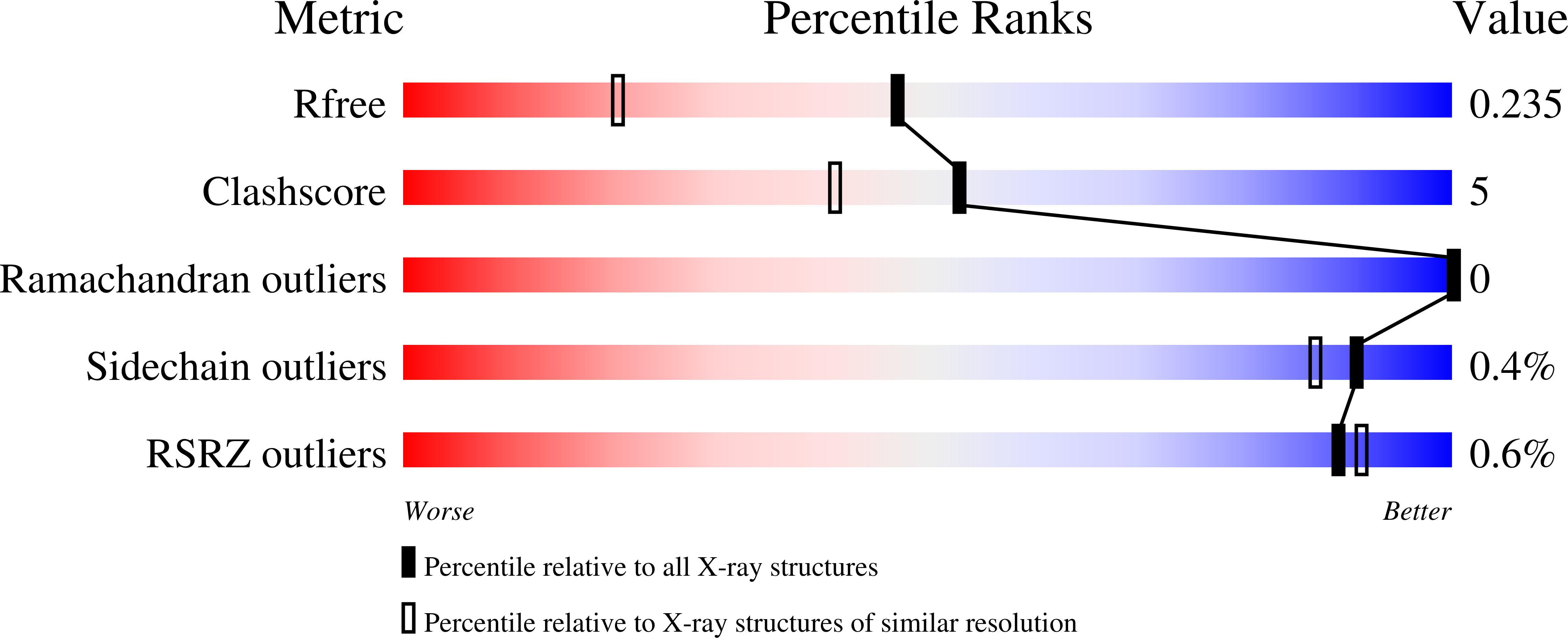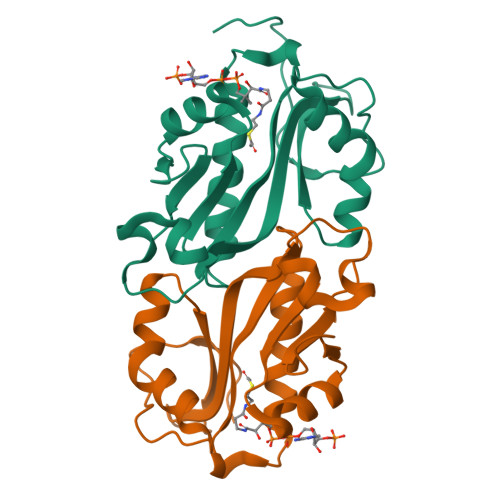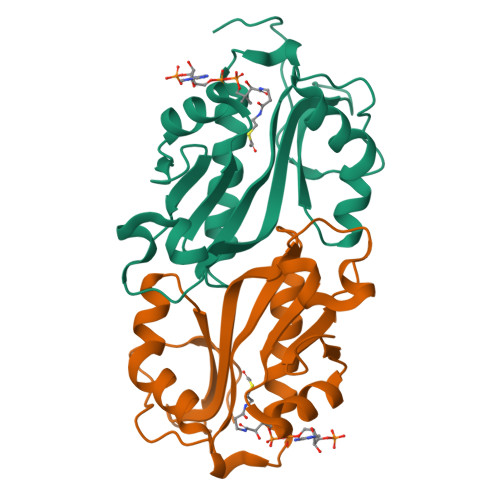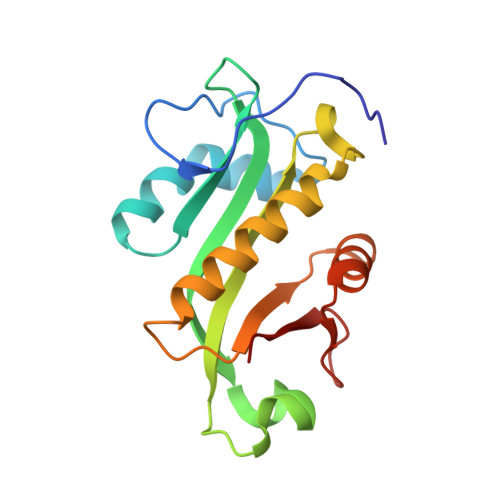A Salmonella Toxin Promotes Persister Formation Through Acetylation of tRNA.
Cheverton, A.M., Gollan, B., Przydacz, M., Wong, C.T., Mylona, A., Hare, S.A., Helaine, S.(2016) Mol Cell 63: 86
- PubMed: 27264868
- DOI: https://doi.org/10.1016/j.molcel.2016.05.002
- Primary Citation of Related Structures:
5FVJ - PubMed Abstract:
The recalcitrance of many bacterial infections to antibiotic treatment is thought to be due to the presence of persisters that are non-growing, antibiotic-insensitive cells. Eventually, persisters resume growth, accounting for relapses of infection. Salmonella is an important pathogen that causes disease through its ability to survive inside macrophages. After macrophage phagocytosis, a significant proportion of the Salmonella population forms non-growing persisters through the action of toxin-antitoxin modules. Here we reveal that one such toxin, TacT, is an acetyltransferase that blocks the primary amine group of amino acids on charged tRNA molecules, thereby inhibiting translation and promoting persister formation. Furthermore, we report the crystal structure of TacT and note unique structural features, including two positively charged surface patches that are essential for toxicity. Finally, we identify a detoxifying mechanism in Salmonella wherein peptidyl-tRNA hydrolase counteracts TacT-dependent growth arrest, explaining how bacterial persisters can resume growth.
Organizational Affiliation:
Section of Microbiology, Medical Research Council Centre for Molecular Bacteriology and Infection, Imperial College London, London SW7 2AZ, UK.

















